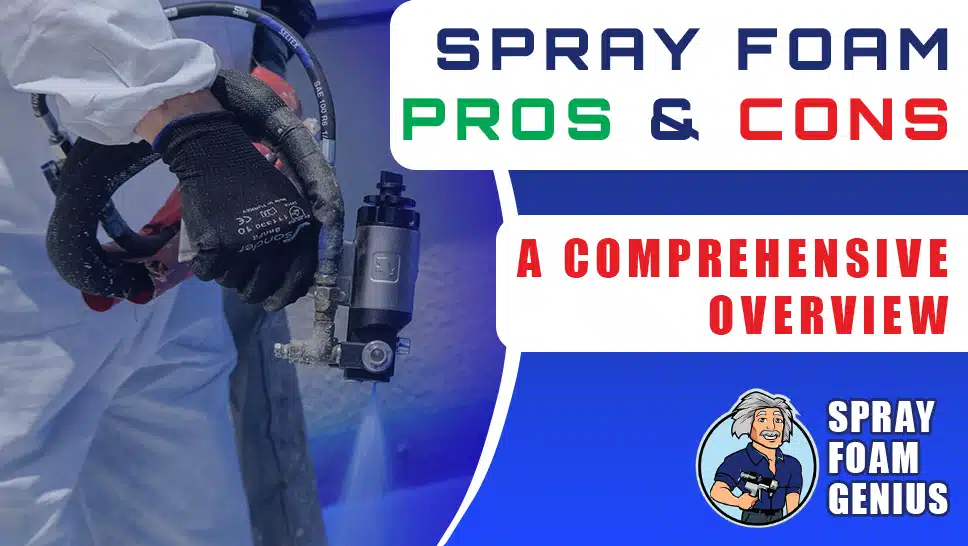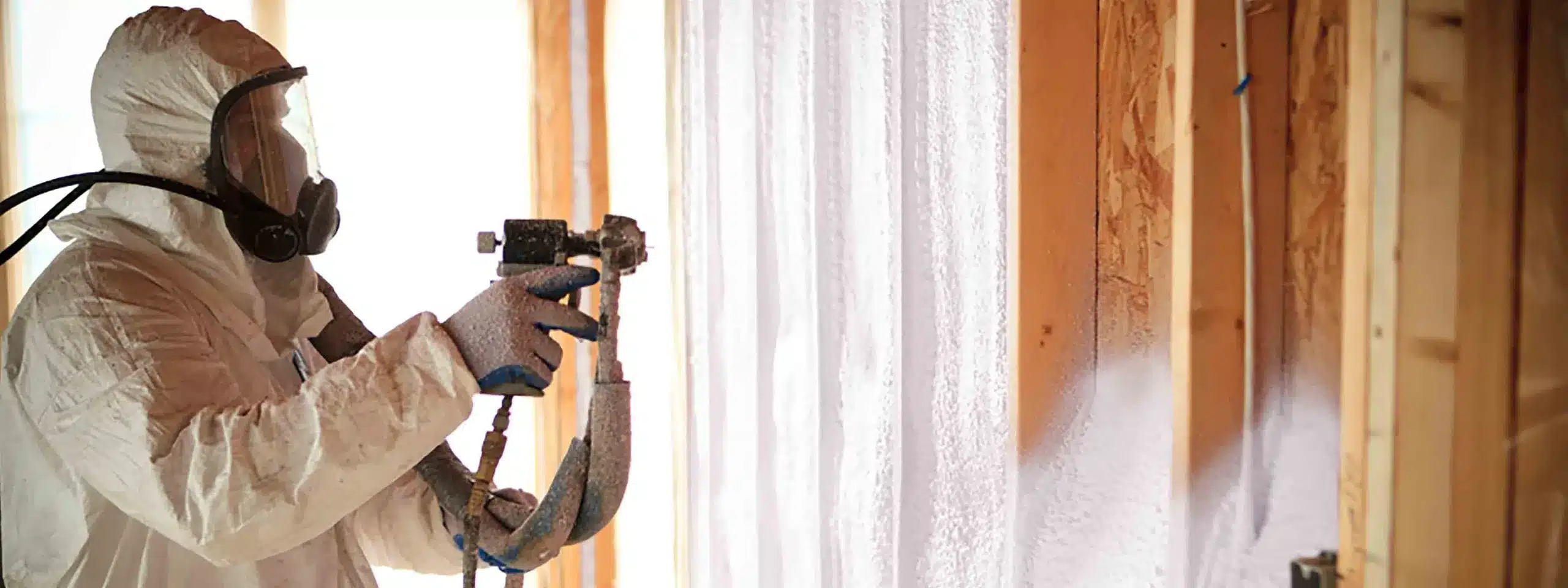
Spray foam insulation has become a popular choice for improving energy efficiency and comfort in both residential and commercial properties. However, understanding the full scope of its benefits and limitations is essential before making an investment. At Spray Foam Genius Marketing, we are dedicated to providing detailed insights to help homeowners and businesses across the USA and Canada make well-informed decisions. In this comprehensive guide, we will explore the pros and cons of spray foam insulation, helping you weigh the advantages against the potential drawbacks.
What is Spray Foam Insulation?
Spray foam insulation is a high-performance insulation material made from polyurethane and other chemicals. It is applied as a liquid that expands and hardens, creating an insulating layer. Spray foam insulation comes in two main types:
- Open-Cell Foam: This type is light, flexible, and has a lower R-value. It is commonly used for interior applications due to its softer nature and lower cost.
- Closed-Cell Foam: Denser and more rigid, closed-cell foam has a higher R-value and offers better moisture resistance. It is suitable for both interior and exterior applications and provides superior insulation performance.
The Advantages of Spray Foam Insulation
1. Exceptional Insulating Properties
Spray foam insulation is renowned for its superior insulating performance. Closed-cell spray foam, in particular, offers a high R-value per inch of thickness, making it an effective barrier against heat transfer. This means that it helps keep your home or business warm in the winter and cool in the summer, leading to significant reductions in heating and cooling costs. The efficiency of spray foam insulation can lead to long-term energy savings and a more comfortable indoor environment.
2. Effective Air Sealing
One of the standout features of spray foam insulation is its ability to create an airtight seal. Unlike traditional insulation materials that may leave gaps or require additional air sealing measures, spray foam expands upon application to fill every crack and crevice. This airtight seal reduces drafts and minimizes air leakage, enhancing the overall energy efficiency of your property. By preventing air from escaping, spray foam insulation helps maintain a consistent indoor temperature and reduces the load on your HVAC system.
3. Moisture Resistance
Closed-cell spray foam insulation excels in moisture resistance. Its dense, impermeable nature prevents water vapor from penetrating, which helps protect against issues like mold and mildew growth. This makes it an ideal choice for areas prone to high humidity or water exposure, such as basements, crawl spaces, and exterior walls. By keeping moisture at bay, spray foam insulation helps prevent structural damage and maintains a healthier indoor environment.
4. Soundproofing Benefits
Spray foam insulation also offers significant soundproofing advantages. The foam’s density and expanding properties help absorb and reduce sound transmission, making it an effective solution for noise control. Whether you are dealing with external noise pollution or seeking to create a quieter interior space, spray foam insulation can help enhance acoustic comfort. This feature is particularly beneficial in noisy environments, between rooms in residential properties, or in commercial spaces requiring reduced noise levels.
5. Durability and Longevity
Spray foam insulation is known for its durability and long-term performance. Unlike other insulation materials that can settle, compress, or degrade over time, spray foam maintains its insulating properties for decades. This longevity means fewer maintenance issues and a longer-lasting solution for your insulation needs. Investing in spray foam insulation can result in a more stable and reliable insulation system that provides ongoing benefits.
6. Eco-Friendly Options
For those concerned about environmental impact, there are eco-friendly spray foam insulation options available. These products use fewer harmful chemicals and have lower environmental footprints compared to traditional spray foam. By choosing eco-friendly options, you can enhance the sustainability of your property while still benefiting from the high-performance characteristics of spray foam insulation.

The Drawbacks of Spray Foam Insulation
1. Higher Initial Costs
One of the most significant drawbacks of spray foam insulation is its higher upfront cost. The materials and professional installation required for spray foam insulation can be more expensive than other types of insulation. While the initial investment is higher, many homeowners and businesses find that the long-term energy savings and improved comfort outweigh the initial expense. It is essential to consider both the short-term costs and long-term benefits when evaluating spray foam insulation.
2. Professional Installation Required
Spray foam insulation requires specialized equipment and expertise for proper application. It is not a DIY-friendly material and must be installed by trained professionals. The application process involves mixing and spraying the foam, which requires skill and experience to ensure optimal results. Choosing a reputable contractor with experience in spray foam insulation is crucial to avoid potential issues such as poor adhesion, uneven coverage, or improper application.
3. Potential Health Concerns
During the application of spray foam insulation, there can be health and safety concerns due to the release of fumes and chemicals. Isocyanates, which are used in the foam formulation, can cause respiratory irritation or other health issues if not handled properly. It is important to ensure that adequate ventilation is provided during installation and that safety precautions are followed. Working with professionals who adhere to safety guidelines can help mitigate potential health risks.
4. Challenges with Removal
If you need to remove or replace spray foam insulation in the future, the process can be challenging. Spray foam adheres strongly to surfaces, making removal a difficult and labor-intensive task. This factor should be considered if you anticipate needing to make changes to your insulation in the future. The difficulty in removal can also impact future renovation projects or modifications to your property.
5. Risk of Overexpansion
Improper application of spray foam insulation can lead to overexpansion, which may cause damage to walls or other structures. It is essential to have the insulation applied by professionals who can control the expansion rate and ensure that the foam does not exceed its intended space. Overexpansion can lead to structural issues and additional repair costs if not managed correctly.
Comparing Spray Foam Insulation to Other Insulation Types
To make an informed decision about spray foam insulation, it’s helpful to compare it to other common insulation materials:
Fiberglass Insulation
- Pros: Fiberglass insulation is one of the most cost-effective options available. It has a relatively high R-value and is fire-resistant. It is also easy to install and does not require professional help for DIY projects.
- Cons: Fiberglass can be less effective at sealing air leaks compared to spray foam. It may settle over time, reducing its insulating performance. Additionally, handling fiberglass can be irritating to the skin and lungs during installation.
Cellulose Insulation
- Pros: Cellulose insulation is made from recycled paper products, making it an environmentally friendly choice. It offers good thermal performance and can be installed in existing wall cavities without significant disruption.
- Cons: Cellulose can settle over time, which may require frequent topping up to maintain effectiveness. It is also less effective at preventing air leaks compared to spray foam insulation.
Rigid Foam Insulation
- Pros: Rigid foam insulation provides a high R-value per inch of thickness and is resistant to moisture. It is often used in foundation and exterior wall applications where moisture resistance is crucial.
- Cons: Rigid foam insulation can be more expensive and may require professional installation. Unlike spray foam, it does not expand to fill gaps and may require additional air sealing measures.
Making the Right Choice for Your Insulation Needs
Spray foam insulation offers numerous advantages, including excellent thermal performance, air sealing capabilities, and moisture resistance. However, it also has potential drawbacks such as higher initial costs and the need for professional installation. By understanding both the benefits and limitations, you can make a more informed decision that aligns with your specific needs and budget.
If you are considering spray foam insulation for your property, it’s essential to work with experienced professionals who can provide high-quality installation and address any concerns you may have. At Spray Foam Genius Marketing, we specialize in connecting clients with top-rated spray foam insulation contractors who can deliver exceptional results.
To learn more about your insulation options and find a contractor who meets your needs, Call us at 877-840-FOAM for USA and 844-741-FOAM for Canada visit our website at sprayfoamgeniusmarketing.com, or email us at [email protected] to get started., Let us help you make the best choice for your property and enjoy the benefits of superior insulation.
- 5 Google My Business Hacks to Double Your Leads for Spray Foam Insulation Contractors - January 14, 2025
- Why Spray Foam Contractors Cannot Ignore Reputation Management in 2025 - January 13, 2025
- Local SEO Secrets Every Spray Foam Contractor Must Know to Win in 2025 - January 13, 2025

